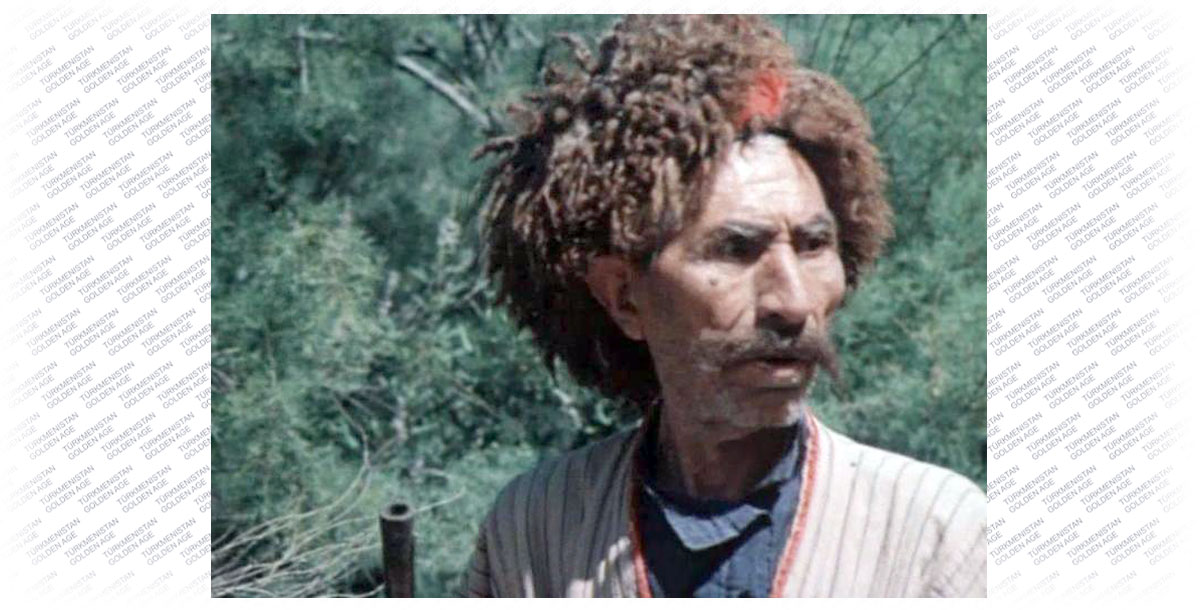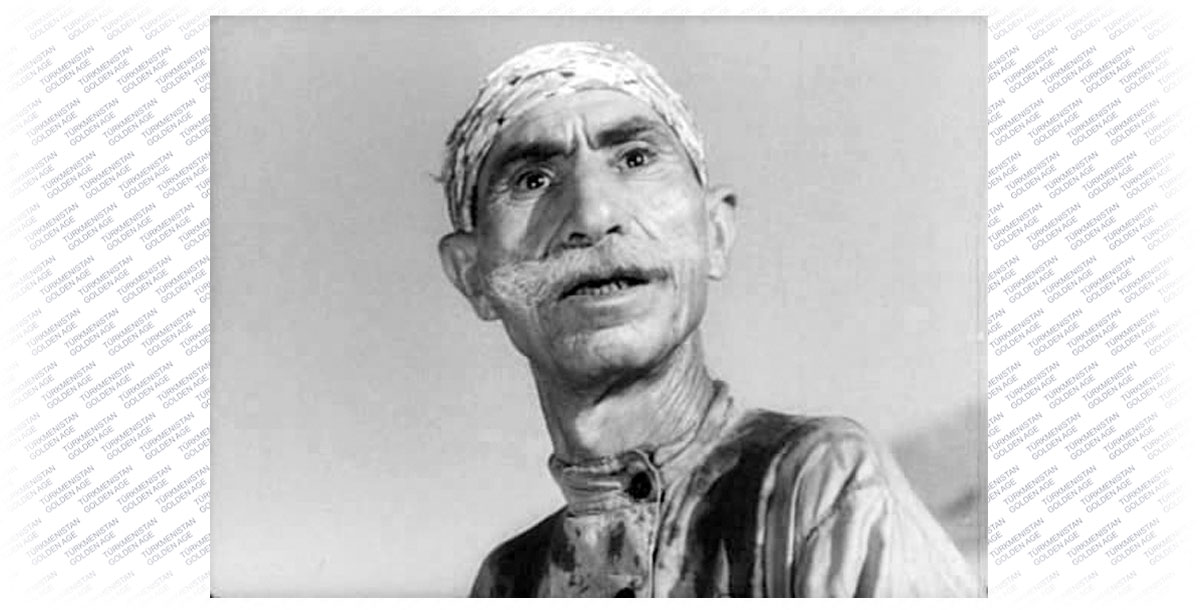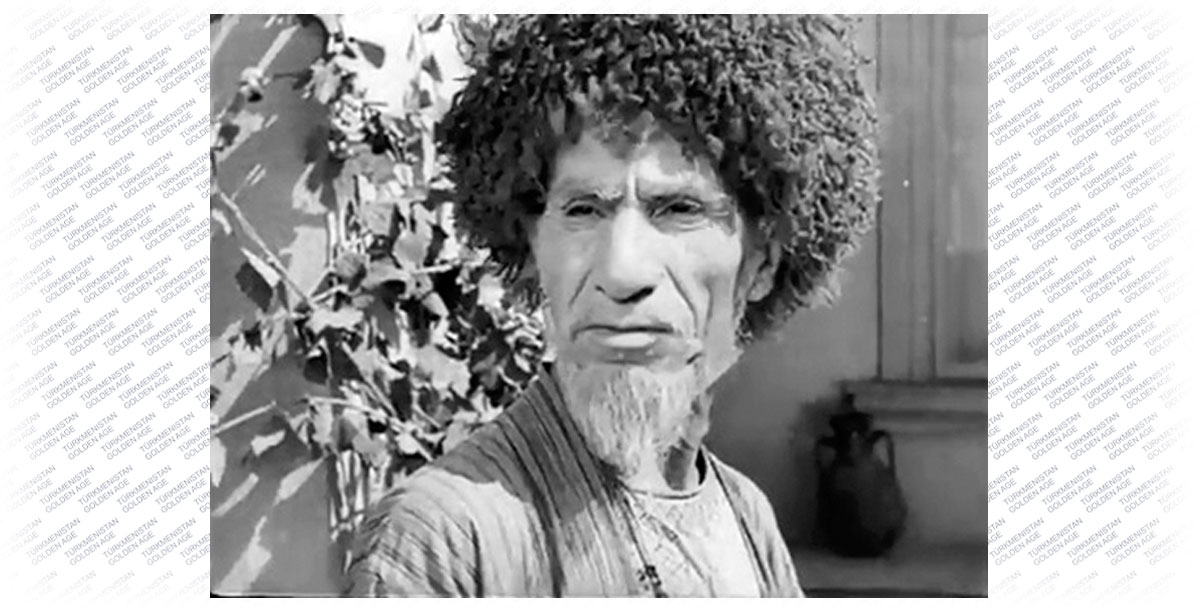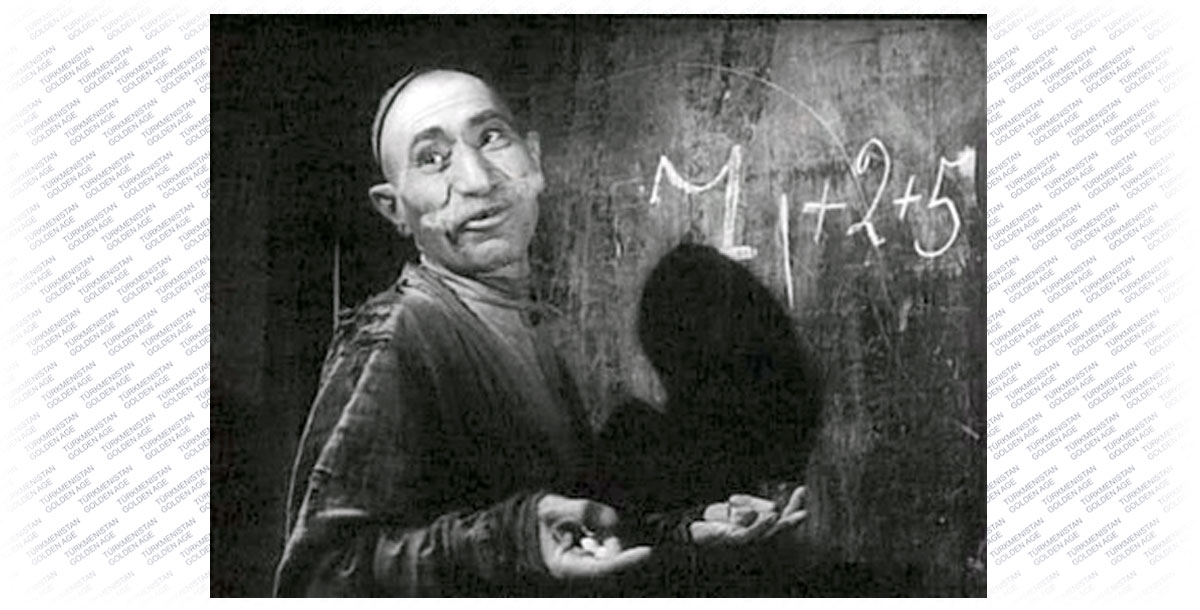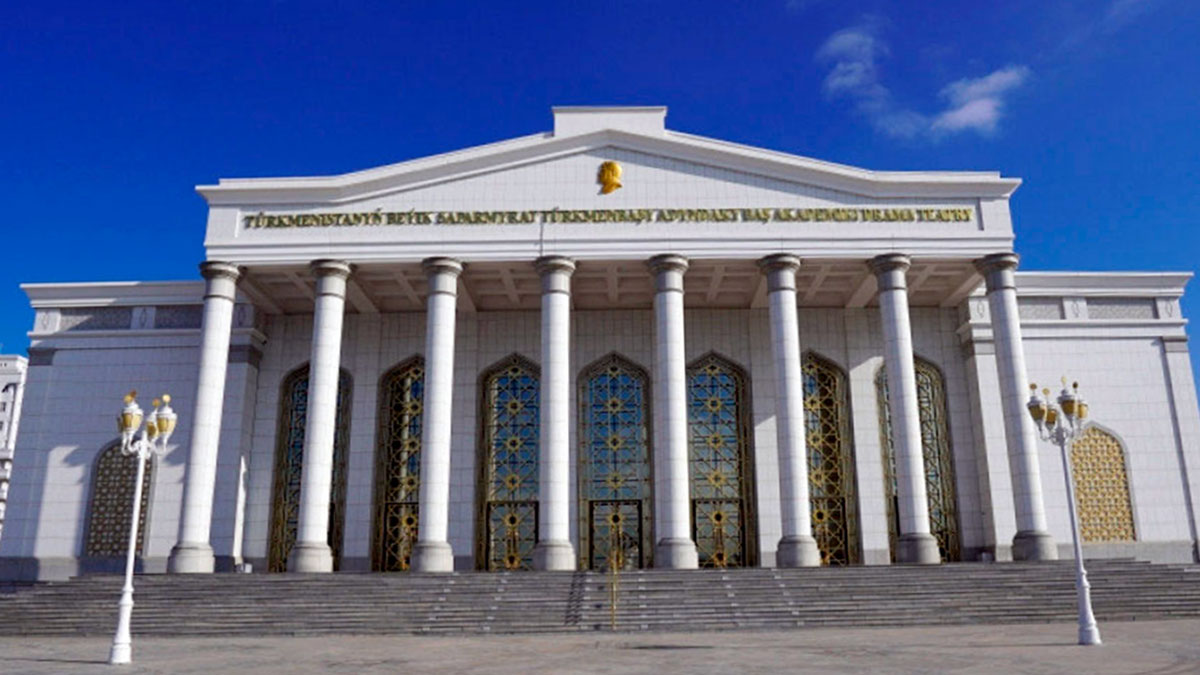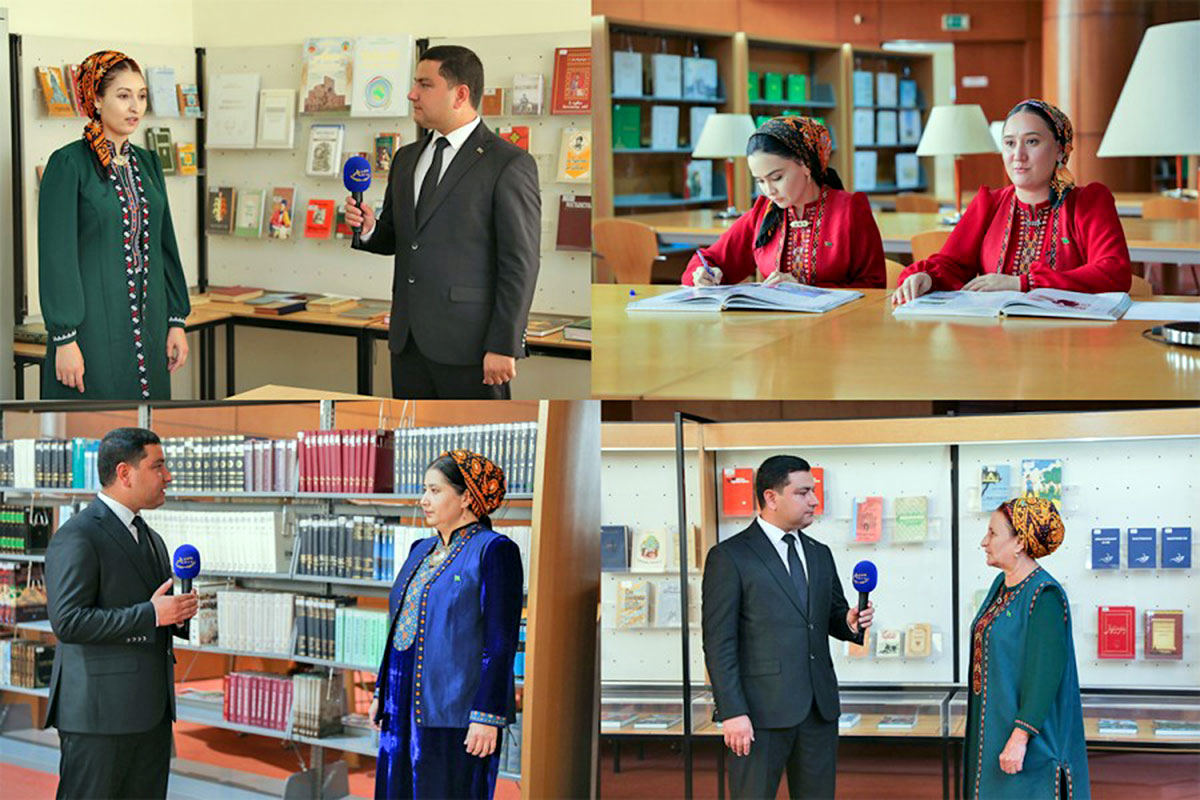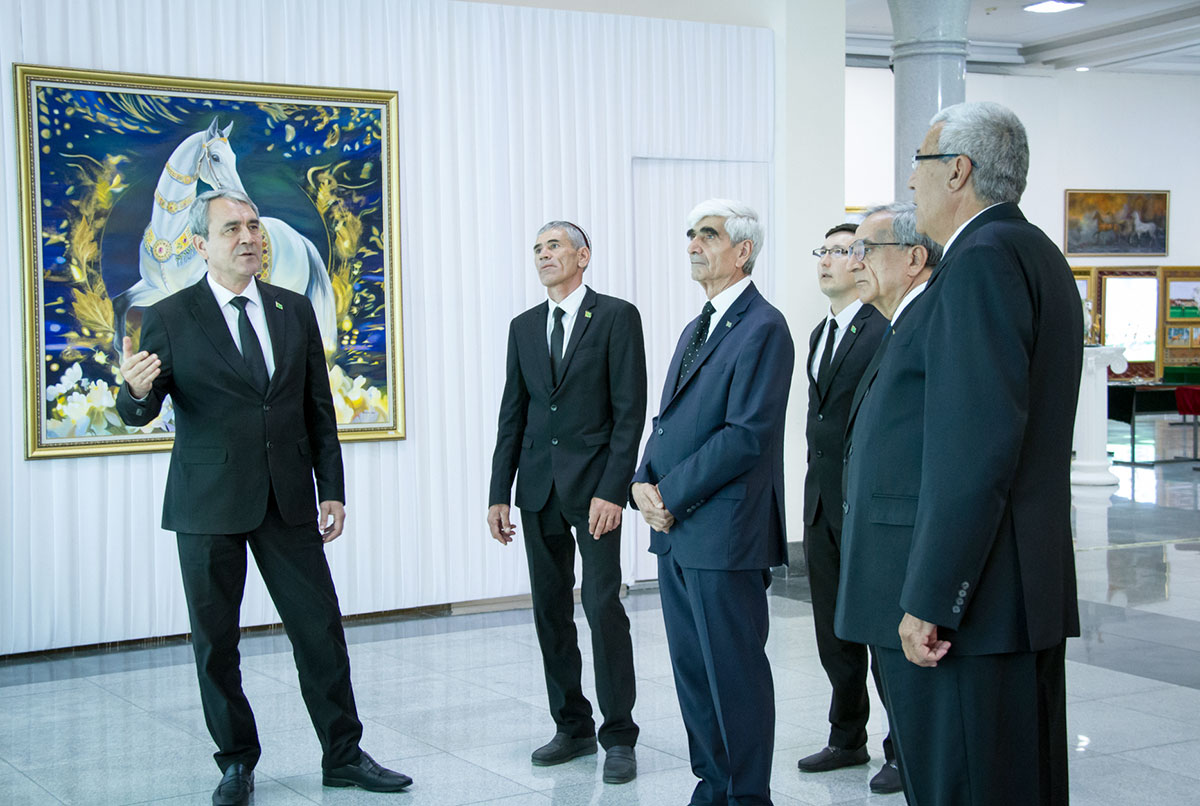Andrey Platonov has a remarkable phrase in his notebooks “Turkmenistan is a country of irony”. The author of “Jan” and “Takyr”, who spent a short time in Turkmenistan, managed to accurately capture one of the characteristic features of the Turkmens - the ability not to become discouraged, even when life squeezes tears out of you, but to laugh at the circumstances, to ironicize each other and oneself. It is unlikely that he was familiar with the actor Sarry Karryev, but it can be assumed that the observation of the great writer could well have been born after communicating with such people as this unsurpassed joker.
Sarry Karryev became legendary during his lifetime - not only an artist whose appearance on the screen was perceived with constant joy by the audience, but also a person whose stories and anecdotes were passed from mouth to mouth. He joked as easily as he breathed. It was Munchausen, Khoja Nasreddin, Aldar Kose, and Captain Vrungel rolled into one.
After graduating from school, and then Sarakhs factory school, he went to work in the Kizyl-Arvat car repair shops. But the seventeen-year-old guy was more attracted not by locksmithing, but by participation in factory amateur performances. He had a thick, rich timbre of voice and he read poetry perfectly. And in artistry he had no equal. This natural gift of acting soon beckoned him to Ashgabat, where the country's first theater studio had just opened. In 1929, on the basis of the studio, the first Turkmen Drama Theater named after S. Mollanepes was created. The theater has become a center of talents, a forge of future honored and folk artists. Suffice it to say that the then still very young, and later outstanding actors Aman Kulmamedov, Kulkishi Kulmuradov, Bazar Amanov, Surai Muradova, Ogulkurban Durdyeva, Ata Dovletov, Gulluk Khojaev, Alty Karliev and other stars of domestic art became the stage mates for Sarry Karryev...
Sarry Karryev served at the Theater for more than ten years, was busy in almost all performances. He played workers, peasants, poor people in plays by local authors, ancient Italians, Spaniards, French in plays by Goldoni, Lope de Vega, Schiller, Moliere. And then he suddenly left the theater for the cinema.
Sarry Karryev remained an unsolved mystery until the end of his life. Truth and fiction were so closely intertwined in the fate of this dreamer that in the end it became difficult to separate one from the other. Most likely, he was drawn by the emerging cinema in Turkmenistan. Before the war, Sarry Karryev had already tasted the sweet fruit called “cinema”, having starred in the films “Dursun”, “Prosecutor”, “The Magic Crystal”. Many of his stage mates also acted in films then.
He went to the front as a volunteer, despite the reservation he was entitled to as an actor. He fought, however, not for long. Severe wound in the leg, hospital and returning home. He spoke about the war in his usual manner: “I am sitting in a trench. Winter, cold, boring, I want to talk to someone. My fellow countryman Mered is sitting in the trench opposite. I shout to him: “Hey, Mered!”. And the frost is such that the sound barely reaches the middle, freezes and falls to the ground. I scream again and again my voice cannot reach. Then I strain and yell with all my might: “Hey, Mered!” Now the voice can hardly be heard, but it can be heard. The countryman yells “Hey, Sarry” back, but the same thing happens to his voice. So we shouted to each other, talked, warmed up.”
One of the first post-war films, The Distant Bride, became an important milestone in the history of Russian cinematography. Sarry Karryev played one of the main roles in it - the motorcyclist Sarry. The film about the brotherhood of peoples, about love and friendship was awarded the Stalin Prize. Alty Karliev, who played the main role, also received a state prize. This gave Sarry Karryev a reason for such a story: “Actually, I should have received this award. The film was watched by Stalin himself. When he saw me, handsome, in a motorcycle helmet, in glasses, with a gorgeous black mustache, he turned to the chairman of the USSR State Committee for Cinematography Bolshakov, who was sitting behind him, and pointed his finger at the screen, said: “This artist must be given the State Prize.” Bolshakov, looking at Stalin, looked at the screen, and at that moment Alty Karliev appeared in the frame. And so it happened that Alty received the award instead of me.”
He attracted people like a magnet. If during the breaks between filming you heard laughter next to the set, it means that Sarry-aga is sitting there, surrounded by actors and telling his stories. He spoke masterfully. These gatherings turned into a theater for one actor. It is impossible to remember all of his folklore - he composed stories on the go and, unfortunately, no one bothered to write them down then. They remained only in memory. During the filming of Ayna, Sarry told the crew the following story. “In 1934, Lenin called me and Gorky to check the state of art ...” Wait, Sarry-aga, one of the actors tells him, - by that time Lenin had already died ten years ago. “How can you say that!” The narrator was indignant, “Lenin is always alive! So, we first went to the Bolshoi Theater, where they gave a ballet. The play ended, the curtain closed, and when it opened, the actor, who died along the plot, got up and began to bow to the audience. Lenin said: “Gorky, Sarry, let's get out of here. This is not art - the dead do not rise.” We went to the Moscow Art Theater. There, too, after the performance, the dead came to life and let a bow. Then Lenin took us to the cinema. He liked the film – that’s when a character dead remained dead. And then he said: “Sarry, Gorky, you should know that cinema is the most important of all arts for us!” True, then for some reason our names were removed from the text and an ellipsis was added, but oh well, let it be.” He had a weakness: he could hardly remember the text of the role and the directors had to give him cues. It happened that instead of memorized words, he gave out such an improvisation that everyone could hardly restrain themselves from laughing. But it was his line that entered the film afterall.
Sarry Karryev devoted more than forty years to the national cinematography. Having no idea about Stanislavsky's system, he played with such confidence that the viewer could rightfully say: “I believe!” The roles were different - big, medium, small, but whoever he played, first of all, he played himself - complex, simple, funny, sad, cheerful. His heroes are people from the rural depths, just like the performer himself. That's why his spectators believed him, that's why they loved him. It is no coincidence that in many films his characters bear his own name - Sarry. For him, roles were written. So, the script of the film “The Cunning of Old Ashir” was written with the expectation of Sarry Karryev. And yet the best and most memorable in the list of characters he created was the image of Kandym Aga from the movie “The Decisive Step”. Poor fellow, rolling in an inconceivably shabby dress, a rural joker, over whose well-aimed and caustic jokes the whole aul made fun of, a lonely man and seemingly philosophically calm about everything that happens around him, in the scene of the death of his fellow villager he showed such genuine suffering, so bitterly lamented over him, as if this strange death had become his personal tragedy. Such pain cannot be played without having experienced it. Perhaps this is how he mourned his comrades in that distant war that crippled him.
He lived a long life. In recent years, Sarry Karryev no longer filmed - he could not see well, could hardly move - the front wound aftermath, but almost every day he came to the courtyard of the film studio, sat on a bench and was immediately surrounded by young actors who knew Sarry-aga from films, directors, from whom he was filmed and everyone asked to tell one of his endless stories. And he sedately, without haste, gave out another tale with an unpretentious but funny plot, creating it practically out of thin air. One day, in the spring of 1986, the bench was empty. People's Artist of Turkmenistan Sarry Karryev left it forever. But a folk storyteller remained in our memory as a person next to whom sadness was forgotten, bad mood went away, tuning listeners to a cheerful wave, as it carried you along the stormy sea of inexhaustible fantasy of this witty, crafty, wise old man.
Vladimir Zarembo




